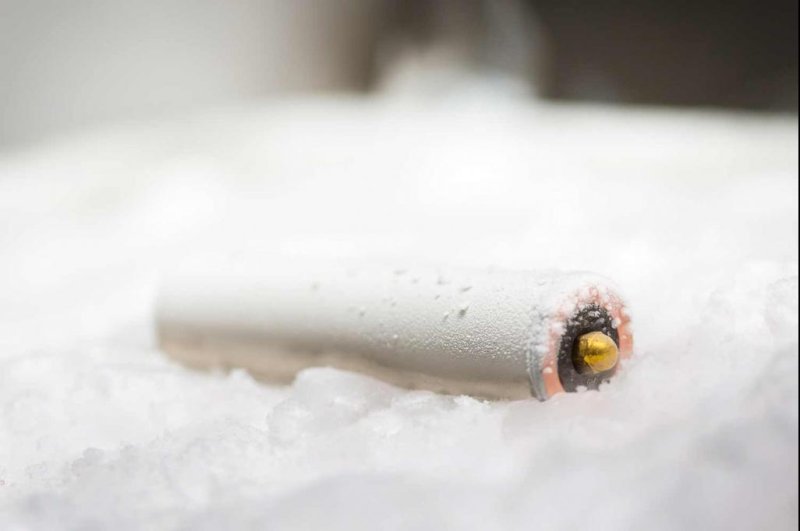Novel liquified gas electrolytes allow lithium ion batteries to perform at extremely low temperatures. Photo by David Baillot/UC San Diego Jacobs School of Engineering
June 16 (UPI) -- Scientists at the University of California, San Diego have developed new electrolytes capable of powering batteries at temperatures as low as negative 80 degrees Celsius.
The technology could help make lithium ion batteries safer and more efficient, as well as boost the range of electric vehicles during cold winter months. The new batteries could also power vehicles and instruments operating in extreme cold, like space rovers, satellites and high-alitiude weather baloons.
The electrolytes are composed of liquefied gas solvents. Many gases require extreme pressure to liquify. Gases that liquify at moderate pressures are less apt to freeze.
To create their battery's electrolyte, researchers liquified fluoromethane gas. For the capacitor electrolyte, scientists liquified difluoromethane gas.
"Better batteries are needed to make electric cars with improved performance-to-cost ratios," Shirley Meng, a nanoengineering professor at UCSD, said in a news release. "And once the temperature range for batteries, ultra-capacitors and their hybrids is widened, these electrochemical energy storage technologies can be adopted in many more emerging markets."
Electrolytes have been identified as one the main barriers inhibiting efficiency improvements in lithium ion battery technology. Many researchers have abandoned liquid electrolytes in favor of battery model using solid state electrolytes.
"We have taken the opposite, albeit risky, approach and explored the use of gas based electrolytes," said Cyrus Rustomji, a postdoctoral researcher at UCSD.
Aside from efficiency, one of the biggest problems with lithium ion batteries is their tendency to catch on fire. When electrolytes overheat, they can trigger a chemical chain reaction that generates extreme temperatures inside the battery. The liquified gas electrolytes limit this risk, ensuring internal temperatures remain moderate.
The electrolyte works like an emergency off switch.
"As soon as the battery gets too hot, it shuts down. But as it cools back down, it starts working again," Rustomji said. "That's uncommon in conventional batteries."
Additionally, the electrolyte's unique chemical makeup prevent the build up of lithium metal on the battery's electrodes. Inside commercial lithium ion batteries, lithium deposits called dendrites can grow like tiny stalagmites, eventually piercing battery components and causing the circuitry to short out.
Researchers hope to continue improving their battery's efficiency and low-temperature abilities. They detailed their most recent electrolyte breakthrough in the journal Science.















